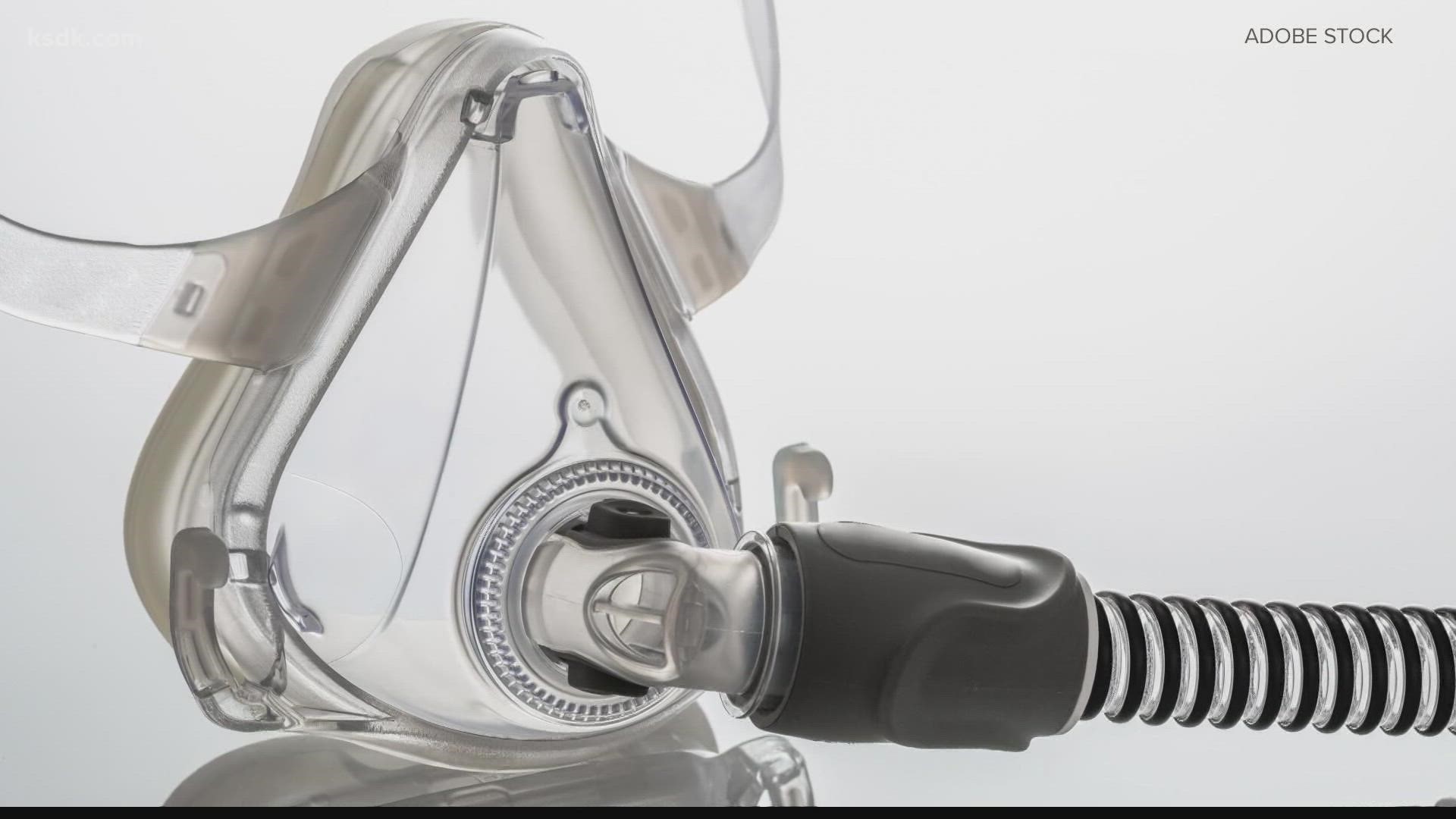ST. LOUIS — Following a June recall of dozens of Philips ventilators, CPAP, and BiPAP machines, viewers reached out to the Verify team about conflicting messages they got from the manufacturer and other sources, from mailers to phone calls and advertisements.
Viewers like Larry Clark wanted to know what the recall meant for their health. Others wanted to know who was responsible for replacing or repairing their device.
THE QUESTION
Are patients being told to stop using recalled PAP therapy devices right away?
And is Medicare responsible for replacing them?
THE SOURCES
The manufacturer's website
The FDA
The American Academy of Sleep Medicine
Loretta Colvin, a nurse practitioner in Sleep Services at SSM Health
THE ANSWER
Current guidance from the manufacturer and the experts does not tell people to stop using recalled PAP therapy devices right away;
And the manufacturer is coordinating replacement of devices with durable medical equipment providers.
WHAT WE FOUND
Positive airway pressure devices, also called PAPs or CPAPs, are often bedside devices that patients use to treat breathing conditions like apnea while they are asleep.
The recalled devices include some branded as Respironics or DreamStation, all manufactured by Philips.
The FDA says chemicals in sound-absorbing foam could harm users, and pieces of broken foam could end up in the machine's airway.
According to the Philips website, when it initiated the recall, "Philips Respironics had received several complaints regarding the presence of black debris/particles within the airpath circuit...Philips also had received reports of headache, upper airway irritation, cough, chest pressure and sinus infection."
Loretta Colvin, a nurse practitioner in Sleep Services at SSM Health, said that the recall applies to devices that all use the same kind of foam, and other manufacturers do not use the same kind of foam, so the recall is unlikely to be expanded.
She said that some of her patients stopped using their devices after the recall, but that's not always the best idea.
"There are a lot of different options and it depends on the severity of their sleep apnea, their health history--that's why they need a health provider, like myself, or the doctor. And then, decide what are their options, depending on their insurance, the age of their device, what the patient prefers," said Colvin.
While early announcements from the manufacturer told users to "stop therapy before consulting with your physician," in November they updated their guidance to emphasize talking with a physician first.
The FDA's guidance states, "To decide on the next steps, discuss the benefits and risks based on your individual health situation with your health care provider, such as your primary care physician or sleep doctor."
The American Academy of Sleep Medicine writes that those next steps could include using a different device, using the recalled device with a filter, or using alternative treatments for sleep apnea.
Colvin added that a simple step anyone can take is to register their device on the Philips website to find out whether it is subject to the recall and start the process of replacing or repairing it.
The manufacturer's website also has a list of the devices that are being recalled and their updated guidance to users. The website states that they have already begun sending replacement units, and they expect to have all repairs and replacements finished by September 2022.
People with older devices may be eligible for a brand new device through their insurance. The healthcare provider who prescribed the PAP device can discuss whether insurance will pay for a new device.
Colvin mentioned that patients have reported receiving unsolicited calls and letters asking about their CPAP machines and telling them what to do about a replacement. She says that some of them appear official but are giving inaccurate advice and timelines to patients. She advised that patients call verified numbers to get updates from the manufacturer, their care provider, and their durable medical equipment provider.

